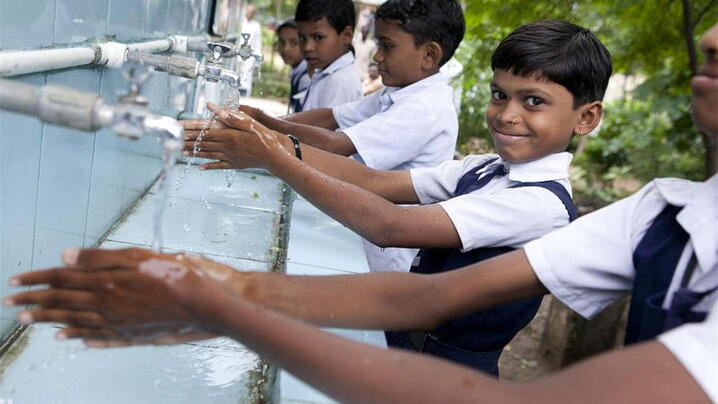
Last week, I tuned into a World Bank live chat about the importance of investing in sanitation. Speakers included UN Deputy Secretary-General Jan Eliasson, UNICEF Executive Director Anthony Lake, World Bank Group Vice President of Sustainable Development Rachel Kyte, and American Standard Vice President Jim McHale. They discussed how although one of the UN’s Millenium Development Goals is halving the number of people without sustainable access to safe drinking water and basic sanitation by 2015, not much progress has been made.
Lack of access to sanitation services affects billions of people around the world. In fact, 2.5 billion people do not have access to clean sanitation facilities and more than 1 billion defecate in public. 2,000 children die from diarrhea every day, but if we end open defecation, we could cut this number by 1/3! Diarrhea prevents children from attending classes; 272 million school days are lost each year because of this condition. Stunting is also caused by diarrhea, because it depletes the body of nutrients. While stunting may not affect many of us living in the United States, it affects 50% of the population in India and 60% in Yemen. Children affected by stunting are shorter, more vulnerable to disease, and die prematurely because their vital organs do not fully develop.
This is not a glamorous topic, and the speakers acknowledged that perhaps this is the reason why sanitation does not receive as much attention as other issues addressed by world leaders. Jan Eliasson commented that many times, it’s too easy for the middle and upper classes to avoid this problem; it’s only when the elite sense that their health and lifestyle is at risk that any action will take place. It’s too easy for decision-makers, safe from these problems, to push sanitation aside. A notable point that one of the panelists made was that to improve sanitation globally, developed countries cannot simply deliver toilets to villages. It’s important to spend time with communities and explain the reasoning behind using toilets and hand washing with soap to help villages develop healthier behaviors.
Investing in sanitation means that millions of people can live productive lives and healthy societies can thrive. We would help future generations and see an immediate payback in economic growth, according to the panelists. As Eliasson stated “No one can do everything, but everyone can do something.” What are some ways your community could help villages overseas with sanitation?
Check out the World Bank’s Water Blog for more news about their efforts to improve sanitation worldwide. To learn more about CityLinks, visit our website and follow us on Twitter at @ICMACityLinks. Please visit ICMA International’s site to find out about the projects ICMA implements around the world.
New, Reduced Membership Dues
A new, reduced dues rate is available for CAOs/ACAOs, along with additional discounts for those in smaller communities, has been implemented. Learn more and be sure to join or renew today!
